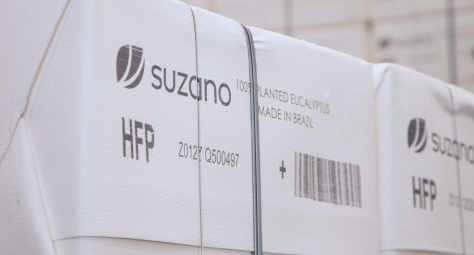sobre o que você deseja falar?


perguntas, sugestões ou problemas técnicos envolvendo a plataforma

informações sobre a empresa


Suzano uses agrochemicals to combat factors that reduce or limit eucalyptus production, such as pests (like insects and mites), diseases (caused by microorganisms and stress factors), and weeds (plant species that compete for space, water, light, and nutrients).
For each biological target, we carry out what we call integrated management, from which we seek to know the target to be controlled and develop tools for population detection and monitoring, assessing issues such as the incidence and severity of each infestation.
Based on this monitoring, we control the target, whether by biological, genetic, physical, cultural or chemical strategies, prioritizing biological and genetic control whenever possible. Recommendations for the use of agrochemicals are made by a specialized team, based on compliance with national, international, and certification policies. The agrochemicals usage is carried out by the operational teams, which generate indicators relating to this type of input usage in the company, assessed annually by external auditors.
We strictly follow the Pesticide Policy of the Forest Stewardship Council® (FSC®)¹ and the Pesticide Policy of PEFC/Cerflor (Brazilian Forest Certification Program), which have their own rules on the use of agrochemicals. We also comply with current Brazilian legislation regulating the registration and use of agrochemicals in the country, which involves the Ministry of Agriculture and Livestock (MAPA), the National Health Surveillance Agency (ANVISA - Ministry of Health), and the Brazilian Institute for the Environment and Renewable Natural Resources (IBAMA - Ministry of the Environment).
We are part of other initiatives that work technically on the issue of the responsible use of agrochemicals, including:
We are committed to maintaining a technical basis behind our recommendations involving the use of agrochemicals. For this reason, any product used in our activities must be included in a technical list reviewed and managed by a qualified professional. This list contains all the agrochemicals authorized for use at Suzano - by the policies we follow - and when it is updated in the system, a communication is sent to the person responsible for purchasing this type of input at the company.
Whenever possible, we seek to expand the application of biological pest control techniques, as well as genetic control by selecting eucalyptus clones with a certain level of resistance to pests and diseases. Thus, given that environmental factors (such as temperature, humidity and the occurrence of fires) can favor or hinder biological control, we evaluate which control method is the most suitable for each field scenario and each target to be controlled.
As a result of these actions, by 2024 we will have produced 364.7 million biocontrollers, released on 496,000 hectares. About genetic control, in the same year, we evaluated resistance to diseases and pests in potential new clones and seedlings originating from different progenies.
In 2024, we continued the actions of 2023 in investing in people and infrastructure, which allowed us to expand the preventive strategies of genetic control (FenomicS Project) and biological control (Biocontrol Project). In addition, we have made the risk alerts for some pests and diseases operational and dynamic, providing more agile and targeted decision-making, allowing us to control these diseases in smaller outbreaks.
Note: